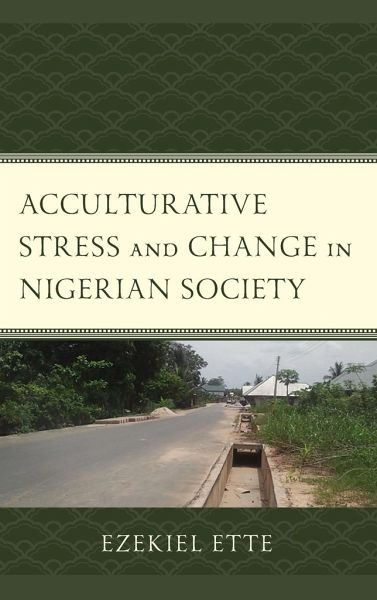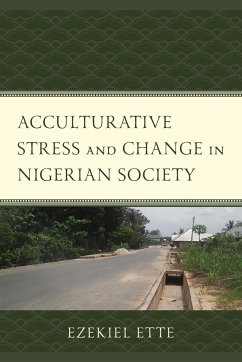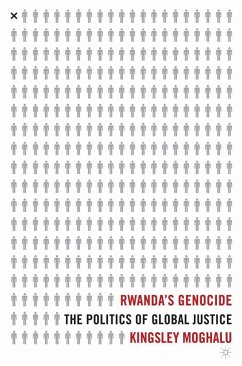
Acculturative Stress and Change in Nigerian Society
Versandkostenfrei!
Versandfertig in über 4 Wochen
104,99 €
inkl. MwSt.
Weitere Ausgaben:

PAYBACK Punkte
52 °P sammeln!
This book traces the Annang people of Nigeria's history and struggle for ethnic identity. Ette demonstrates how, after colonialism, the indigenous elites who threw off colonial power adopted methods of governance closely resembling the structures put in place by the colonizers and the effect that had on ethnic groups within the country.














